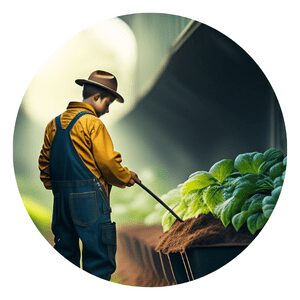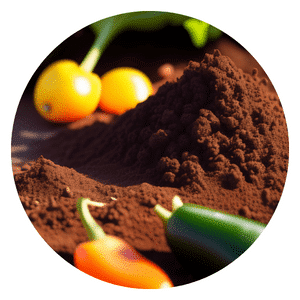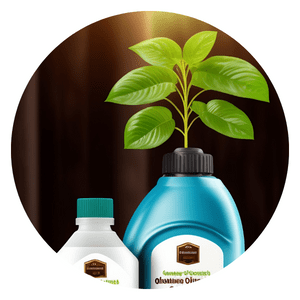How To Compost Donkey Manure
Donkey manure, also known as donkey dung or donkey poop, is a valuable resource for gardeners and farmers alike.
Composting this organic material not only helps reduce waste but also creates nutrient-rich soil amendments that can enhance plant growth and improve soil health.
However, composting donkey manure requires careful attention to the right techniques and considerations to ensure optimal results.
In this article, we will explore the step-by-step process of composting donkey manure, including selecting the right materials, managing ratios, monitoring temperature and moisture levels, and troubleshooting common issues along the way.

Donkey Manure Compost Menu
Collect the Manure
Once you have gathered the donkey manure from the stable or paddock area, it is important to ensure that any bedding or straw mixed with the manure is also included. This organic material will add carbon to the compost pile and help create a balanced mixture.
Using a pitchfork or shovel, carefully scoop up the manure and transfer it into a designated composting area.
When collecting the donkey manure, be sure to wear gloves and take necessary precautions to prevent contact with any harmful bacteria.
It is important to remember that fresh manure can contain pathogens that may cause illness if not properly handled.
By wearing gloves and practicing good hygiene, you can minimize any potential health risks.
Once you have collected the manure, it is time to transport it to your composting area for further processing.
Consider creating separate piles for different types of organic material such as donkey manure mixed with bedding/straw, grass clippings, leaves, and kitchen scraps. This will allow you to easily manage each pile’s moisture levels and monitor their decomposition progress.
By following these steps, you are on your way to effectively composting donkey manure and producing nutrient-rich soil amendment for your garden or plants!
Choose a Composting Location
When it comes to choosing a composting location for donkey manure, there are a few key factors to consider.
Firstly, it is important to select a well-drained area for your compost pile or bin. This will help to ensure that excess moisture drains away and prevents the pile from becoming waterlogged, which can lead to unpleasant odors and slow down the composting process.
Furthermore, it is crucial to keep your compost pile or bin away from any water sources. This includes streams, ponds, wells, or any other body of water.
By doing so, you can prevent potential contamination of the water supply with pathogens or pollutants present in the decomposing manure.
Ideally, choose an area that receives ample sunlight as this will help speed up the decomposition process by providing warmth and promoting the growth of beneficial microorganisms.
Additionally, selecting a spot that is easily accessible will make it more convenient for you to regularly turn and monitor your compost pile.
By carefully considering these factors and selecting an appropriate location for your donkey manure composting endeavors, you can create a healthy and efficient system that produces nutrient-rich organic matter for use in your garden or landscaping projects.
Prepare the Composting Area
To prepare the composting area for donkey manure, it is essential to start by clearing the ground and ensuring that it is free from weeds and grass. This step is crucial because any existing plants can compete with the composting process for nutrients and moisture.
Removing weeds and grass will also prevent them from growing into the compost pile or bin, making it easier to manage.
If you are using a compost bin for donkey manure, set it up according to the manufacturer’s instructions.
Compost bins come in various sizes and designs, so following the guidelines will ensure optimal functionality.
It is important to choose a bin that allows air circulation while keeping pests out.
Additionally, make sure the bin has proper drainage to prevent waterlogging or excessive moisture buildup within the pile.
By preparing a clean ground for your composting area and setting up a suitable bin correctly, you are laying down solid foundations for successful donkey manure composting. These initial steps will facilitate efficient decomposition of organic matter, leading to nutrient-rich compost that can be used in your garden or agricultural fields.
Remember to regularly maintain and monitor your compost pile by turning it periodically and adding necessary ingredients like carbon-rich materials (such as straw or dry leaves) alongside nitrogen-rich materials (donkey manure).
In fields where secrets fertilizer lay, A compost donkey prances and brays, His manure, a gift to earth's rich ground, Nourishing soil, where life's magic is found. From humble beast springs nature's revival, Organic dance of decay and survival, In this muck lies life's circle complete, Compost donkey manure, a treasure so sweet.
Chappy The Gardener
Layering
Layering is an essential step in the process of composting donkey manure.
After creating a base layer of organic materials like leaves, straw, or wood chips, adding a layer of donkey manure on top enhances the composting process.
Donkey manure is rich in nitrogen and adds valuable nutrients to the compost pile.
The layer of donkey manure acts as an activator, helping to speed up decomposition by providing the necessary nitrogen for microbial activity.
The high nitrogen content in donkey manure also helps balance out carbon-rich materials like leaves or straw, ensuring a proper carbon-to-nitrogen ratio for efficient decomposition.
In addition to its nutrient-rich properties, donkey manure also aids in moisture management within the compost pile.
As it decomposes, the organic matter retains moisture and prevents excessive drying out or becoming too waterlogged. This ideal moisture level encourages beneficial bacteria and fungi to thrive, further breaking down the organic material into nutrient-dense compost.
By incorporating this layering technique into your composting process with donkey manure, you can create a fertile soil amendment that will enrich your garden beds or potted plants with essential nutrients while promoting healthy plant growth and overall sustainability.
Moisture Management
Moisture management is a crucial aspect of composting donkey manure.
It is important to ensure that the compost pile remains moist, as this allows for the breakdown of organic matter and promotes the growth of beneficial microorganisms.
However, it is equally important not to let the pile become soaking wet, as excessive moisture can lead to anaerobic conditions and unpleasant odors.
To maintain an ideal moisture level in your compost pile, regularly monitor its dampness and adjust accordingly.
If the pile appears dry or crumbly, it may be necessary to add water.
Use a hose or watering can to evenly distribute water throughout the pile, making sure not to drench it excessively.
The aim is for the moisture level to resemble that of a damp sponge – when squeezed in your hand, some water should be released without excessive dripping.
Overwatering must be avoided at all costs since it can lead to issues such as leaching nutrients out of the compost and slowing down decomposition due to lack of oxygen circulation.
Therefore, always exercise caution when adding water and make adjustments based on weather conditions and specific needs of your compost heap.
By maintaining proper moisture management techniques throughout the composting process, you will create a healthy environment for breaking down donkey manure into nutrient-rich fertilizer.
Turning the Pile
Donkey manure is an excellent addition to a compost pile due to its high nutrient content and slow decomposition rate.
However, in order to accelerate the decomposition process and ensure proper breakdown of the manure, it is important to turn the pile regularly.
Turning the donkey manure compost pile every few weeks using a pitchfork or shovel helps aerate the pile by introducing oxygen into it.
Oxygen is crucial for the growth of aerobic bacteria that break down organic matter efficiently.
By turning the compost pile, you also help distribute moisture evenly throughout it.
Moisture is essential for microbial activity, which further aids in breaking down and decomposing the donkey manure effectively. This regular turning also prevents excessive water accumulation in certain areas of the pile, which could lead to unpleasant odors or anaerobic conditions.
Turning the donkey manure compost pile every few weeks using a pitchfork or shovel not only helps aerate it but also ensures even distribution of moisture.
These simple steps significantly accelerate decomposition and promote effective breakdown of organic matter such as donkey manure.
By following this practice regularly, you can create nutrient-rich compost that will benefit your garden or plants in no time!
Temperature Monitoring
Temperature monitoring is a crucial aspect of composting donkey manure effectively.
By regularly checking the temperature inside the compost pile, you can ensure that it reaches the optimal range of 120-160 F (49-71 C). This heat is essential as it helps kill pathogens present in the manure. Pathogens such as bacteria, viruses, and parasites can pose a risk to both human health and plant growth if not properly eradicated.
Maintaining the recommended temperature range also promotes faster decomposition of organic matter within the pile.
As microorganisms break down the donkey manure, they generate heat as a byproduct of their metabolic activities.
This rise in temperature indicates that decomposition is occurring efficiently and that beneficial microbes are thriving in your compost pile.
Regularly monitoring and maintaining proper temperatures in your compost pile will not only ensure pathogen destruction but also help accelerate decomposition.
It is important to note that while higher temperatures are beneficial for killing pathogens, excessive heat above 160 F (71 C) may harm beneficial microorganisms responsible for breaking down organic matter.
Therefore, consistently checking and adjusting temperature levels within this optimal range is key to successfully composting donkey manure.
Balancing Carbon and Nitrogen
One important aspect of composting donkey manure is to balance the carbon-to-nitrogen ratio.
Donkey manure is known for its high nitrogen content, which can lead to an imbalanced compost pile if not properly managed.
To promote proper decomposition and create a nutrient-rich compost, it is crucial to add carbon-rich materials such as straw.
By adding straw or other carbon-rich materials to the compost pile, you are providing a source of carbon that will help balance out the excess nitrogen in donkey manure. This is important because an imbalance in the carbon-to-nitrogen ratio can result in slow decomposition and an unpleasant odor from the pile.
The addition of straw also helps create air pockets within the compost, allowing for better airflow and promoting aerobic decomposition.
In addition to balancing the carbon-to-nitrogen ratio, adding straw provides structure to the compost pile.
Donkey manure tends to be wet and compact, so incorporating straw helps create a more airy and loose pile that allows oxygen to reach all parts of the mixture. This promotes aerobic bacteria activity, which accelerates decomposition and leads to faster breakdown of organic matter into nutrient-rich humus.
Overall, adding carbon-rich materials like straw when composting donkey manure plays a crucial role in achieving optimal decomposition conditions.
It balances out the high nitrogen content found in donkey manure while providing structure and improving airflow within the compost pile.
Composting Time
Composting donkey manure is a great way to recycle waste and create nutrient-rich soil for your garden.
However, it’s important to understand that the composting process can take several months to a year before the manure is fully decomposed and ready for use.
The time it takes for the composting process depends on various factors such as temperature, moisture levels, and how frequently you turn the pile.
Temperature plays a crucial role in speeding up or slowing down the decomposition process. Ideally, a compost pile should reach temperatures between 135-160 degrees Fahrenheit (57-71 degrees Celsius) to promote faster breakdown of organic matter.
In colder climates, insulating the compost pile with materials like straw or leaves can help maintain higher temperatures.
Moisture is another key factor that affects composting time.
Donkey manure should be moist but not overly wet or dry.
Aim for around 50-60% moisture content in the compost pile by regularly monitoring its dampness and adjusting as needed.
Turning the compost pile also accelerates decomposition by introducing oxygen into the mix and facilitating microbial activity.
It’s recommended to turn your donkey manure compost every two weeks initially, then reduce frequency as it progresses towards maturity.
By being mindful of these factors and regularly monitoring your donkey manure compost pile, you can ensure an efficient decomposition process that yields high-quality soil amendment for your gardening needs.
Finished Compost
When composting donkey manure, it is important to note that finished compost can be a valuable addition to your garden.
Once the compost has reached a dark and crumbly consistency with an earthy smell, it indicates that it is fully decomposed and ready for use.
At this stage, you can confidently apply the compost to your garden beds. It will not only enrich the soil but also improve its structure and nutrient content.
Another way to utilize finished compost is by mixing it with potting soil. This combination creates a nutrient-rich medium that is ideal for starting seeds or transplanting seedlings into containers.
By incorporating the compost into potting soil, you are providing young plants with essential nutrients and promoting their healthy growth.
In addition to these applications, finished compost can also be used as a top dressing.
Apply a thin layer of compost on top of your existing garden beds or around established plants. This acts as a natural mulch, helping retain moisture in the soil and suppressing weed growth.
Furthermore, as the top dressings break down over time, they release additional nutrients into the surrounding soil, further benefiting your plants’ overall health and vitality.
Additional Considerations
When composting donkey manure, it is crucial to be aware of some additional considerations.
Firstly, fresh donkey manure may contain harmful pathogens that can pose a risk to both human health and plant growth.
Therefore, rather than applying it directly to plants, it is recommended to compost the manure first.
Composting not only helps break down the organic matter but also creates an environment that allows beneficial microorganisms to thrive and eliminate any potential pathogens.
However, while composting donkey manure is generally safe and beneficial for plants when done properly, there are certain materials that should be avoided during the process.
It is important not to include any weed seeds or invasive plant parts in the compost pile as they can survive the decomposition process and find their way back into your garden once you use the finished compost.
Additionally, refrain from adding any animal products such as meat scraps or bones as these can attract pests and cause unpleasant odors during decomposition.
In conclusion, opting for composting rather than directly applying fresh donkey manure ensures the safety of both humans and plants by reducing potential pathogen exposure.
Moreover, being mindful of what materials are included in the compost pile helps maintain its quality and prevent unwanted issues such as weed growth or pest infestation.
By following these additional considerations when composting donkey manure, you can harness its rich nutrients while promoting a healthy gardening environment.
Safety Precautions
When it comes to composting donkey manure, it is crucial to prioritize safety precautions.
Donkey manure, especially if it is fresh, can contain pathogens that may pose potential risks to humans.
To minimize these risks, wearing gloves while handling the manure is essential.
Gloves act as a protective barrier between your hands and any harmful bacteria or pathogens present in the manure.
Additionally, practicing proper hygiene is vital when dealing with donkey manure.
After handling the manure, thoroughly wash your hands with soap and warm water for at least 20 seconds to eliminate any potential pathogens that may have come into contact with your skin. This simple yet effective hygiene practice significantly reduces the chances of bacterial or viral infections.
Remember, by consistently wearing gloves and maintaining good hygiene practices when handling fresh donkey manure during composting activities, you can ensure both your safety and the successful transformation of this organic material into nutrient-rich compost for your garden or plants.
In conclusion, composting donkey manure is a sustainable and beneficial practice that can greatly enhance the health and productivity of gardens and farms.
The unique composition of donkey manure provides a rich source of nutrients that can nourish plants and improve soil structure.
Additionally, the use of donkey manure as compost helps reduce waste and promotes environmental sustainability.
By implementing this practice, gardeners and farmers can not only improve their own yields but also contribute to the overall health of the planet.
So why not give composting donkey manure a try?
Start harnessing the power of this natural fertilizer and make a positive impact on your garden, farm, and the environment today!
Click To Grow
Helps Us Grow – Share If You Like
















